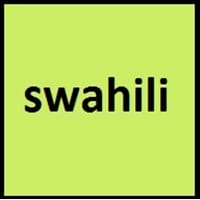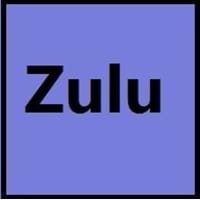Swahili and Zulu
Countries
African Union, Democratic Republic of the Congo, East African Community, Kenya
South Africa
National Language
Burundi, Kenya, Madagascar, Malawi, Mozambique, South Sudan, Tanzania
South Africa
Second Language
Not spoken in any of the countries
Botswana, Lesotho, Malawi, Mozambique, Swaziland, Zimbabwe
Speaking Continents
Africa
Africa
Minority Language
Not spoken in any of the countries
Not spoken in any of the countries
Regulated By
Chama cha Kiswahili cha Taifa (Kenya)
Pan South African Language Board
Interesting Facts
- Swahili language has borrowed many words from Arabic language.
- The oldest written scripts in swahili language were found in 18th century.
- The meaning of word "Zulu" means "Sky"and Zulu was the name of the ancestor who founded the Zulu royal line in about 1670.
- Zulu language has many loanwords borrowed from Afrikaans and English Languages.
Similar To
Burundi, Rwanda, Malawi Languages
Xhosa Language
Derived From
Arabic Language
Not Available
Alphabets in
Swahili-Alphabets.jpg#200
Zulu-Alphabets.jpg#200
Writing Direction
Not Available
Not Available
Thank You
Asante
Ngiyabonga
How Are You?
Habari gani?
unjani
Good Night
Usiku mwema
okuhle ebusuku
Good Evening
Habari za jioni
okuhle kusihlwa
Good Afternoon
nzuri Alasiri
okuhle ntambama
Good Morning
Habari za asubuhi
okuhle ekuseni
Please
tafadhali
Ngiyacela
I Love You
nakupenda
Ngiyakuthanda wena
Where They Speak
Zanzibar island
Gabon, South Africa
Dialect 2
Kimrima
central KwaZulu-Natal Zulu
Where They Speak
Dar es Salaam
Georgia, South Africa
Where They Speak
Kilwa
Zimbabwe
Speaking Population
Not Available
Second Language Speakers
Not Available
Native Name
Not Available
isiZulu
Alternative Names
Kisuaheli, Kiswahili
Isizulu, Zunda
French Name
swahili
zoulou
German Name
Swahili
Zulu-Sprache
Pronunciation
Not Available
Not Available
Ethnicity
Swahili people or Waswahili
Zulu people
Language Family
Niger-Congo Family
Niger-Congo Family
Subgroup
Benue-Congo
Benue-Congo
Early Forms
No early forms
urban Zulu
Standard Forms
Swahili
Deep Zulu
Language Position
Not Available
Signed Forms
Not Available
Not Available
Scope
Individual, Macrolanguage
Individual
ISO 639 6
Not Available
Not Available
Glottocode
swah1254
zulu1248
Linguasphere
99-AUS-m
99-AUT-fg
Language Type
Living
Living
Language Linguistic Typology
Not Available
Subject-Verb-Object
Language Morphological Typology
Not Available
Not Available
All Swahili and Zulu Dialects
Most languages have dialects where each dialect differ from other dialect with respect to grammar and vocabulary. Here you will get to know all Swahili and Zulu dialects. Various dialects of Swahili and Zulu language differ in their pronunciations and words. Dialects of Swahili are spoken in different Swahili Speaking Countries whereas Zulu Dialects are spoken in different Zulu speaking countries. Also the number of people speaking Swahili vs Zulu Dialects varies from few thousands to many millions. Some of the Swahili dialects include: Kiunguja, Kimrima. Zulu dialects include: Qwabe , central KwaZulu-Natal Zulu. Also learn about dialects in South American Languages and North American Languages.
Swahili and Zulu Speaking population
Swahili and Zulu speaking population is one of the factors based on which Swahili and Zulu languages can be compared. The total count of Swahili and Zulu Speaking population in percentage is also given. The percentage of people speaking Swahili language is Not Available whereas the percentage of people speaking Zulu language is 0.16 %. When we compare the speaking population of any two languages we get to know which of two languages is more popular. Find more details about how many people speak Swahili and Zulu on Swahili vs Zulu where you will get native speakers, speaking population in percentage and native names.
Swahili and Zulu Language Codes
Swahili and Zulu language codes are used in those applications where using language names are tedious. Swahili and Zulu Language Codes include all the international language codes, glottocodes and linguasphere.





